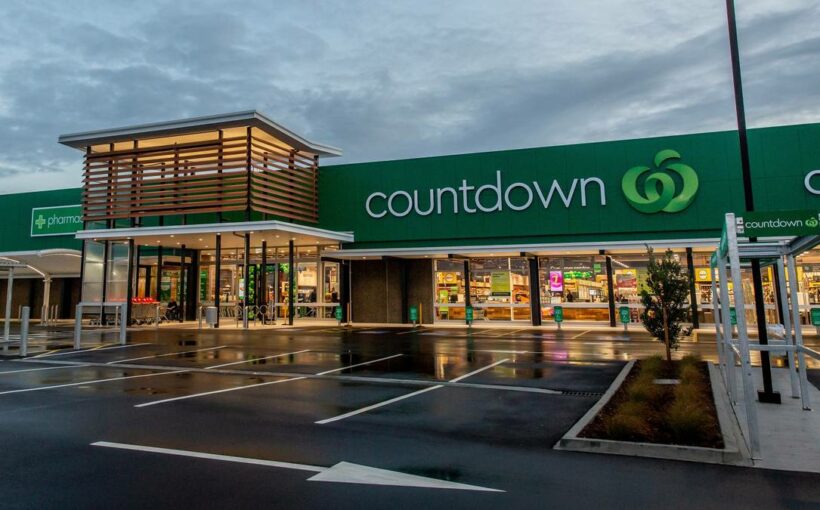Even the most enthusiastic proponents of reform in the grocery sector have found it difficult to articulate specific reasons why the Government should roll up its sleeves and wade into the business itself.
On the final day of an online conference on Tuesday, the Commerce Commission heard views on how the Government could, and even should, actively facilitate new competition in the country’s duopoly grocery sector.
Mostly, however, there was agnosticism on the more drastic solutions put forward to solve the problem of weak competition between New Zealand’s two behemoth supermarkets. And from the companies themselves, Foodstuffs North Island and Foodstuffs South Island and Woolworths New Zealand, there was outright opposition to a significant Government role.
On the Commission’s recommendation, the Government could ultimately provide financial backing to a new (or small) competitor in the sector, likely through a contestable process.
It could invest in a joint venture partner with a view to selling its stake once the partner was established. Or it could retain that mixed ownership model over the long term.
All three options were delineated in the Commission’s draft report on the state of competition in the grocery sector published in July. Its preliminary findings were that competition in grocery retailing is weak, prices to consumers are inordinately high, and supermarket profits are uncommonly fat (the supermarkets contest this).
But just one party has used the conference – running over the last several weeks – to plump for Government investment in the sector by way of remedy.
Sarah Balle, founder of Supie, a new online supermarket, has repeatedly suggested her business, which she says is limited by access to capital and the power of the supermarket incumbents, could better grow and compete with the help of Government funds.
In contrast, Tex (Simon) Edwards, representing both the recently incorporated company, Northelia, and the lobbying entity, Monopoly Watch, has pushed for the forced divestment of existing retail stores, the sale or separation of which could help constitute a third major player.
Edwards has said he already has significant capital backing (should mandated store divestment take place) and he was uncharacteristically silent on Tuesday on the question of how the Government might improve competition by actively entering the market itself.
Matthew Lane, general manager of convenience store chain Night’nDay confined himself to calling for a “non-conflicted” independent wholesaler.
Currently New Zealand has no large, independent grocery wholesaler. The Commission is weighing remedies that include requiring large supermarkets to separate their wholesale functions operationally or even structurally so that they could be required to sell under set rules to third parties. It is also considering the mandated divestment of wholesale operations.
The Food and Grocery Council, which represents suppliers, has already secured the supermarkets’ agreement to a code of conduct to govern their relationships and negotiations with their behemoth supermarket customers.
CEO Katherine Rich told the Commission: “harm will continue if you don’t act.” But her comments were not specifically prescriptive.
Likewise Jon Duffy, Consumer NZ chief executive, warned the Commission it should act, but he didn’t delineate how. “Decisions on the best form of interventions and should not be driven by the risks to supermarkets’ bottom lines they should be driven by the desire to improve competition and outcomes for consumers and only intervention will achieve this,” he said.
The supermarkets were united in their views that the concessions they’ve already offered are sufficient to boost competition and should be given time to work. Their key compromises to date are agreement to a code of conduct for suppliers and an undertaking to abandon the covenants on land and leases that help to block new entrants. They suggested these remedies be given time to work, and that more radical reforms would likely add to rather than reduce costs for consumers.
The Commission concluded its conference-style consultations on Tuesday, but remains open to further submissions until November 23. It will make its final report by March 8, 2022.
The last word in the forum didn’t go to New Zealand Initiative chief economist Eric Crampton but his puckish suggestion was among the most memorable.
In considering ways to facilitate new competitors’ entry in the grocery market, Crampton said, the Government could simply resolve to dismantle the barriers to entry of its own making.
The Commission, he suggested, could then write to international grocers with the following invitation: “Hello international grocer, New Zealand might not have featured in any plans you might have had for international expansion. Small markets at the far end of the world beset by regulatory impossibilities that make it hard for new entrants to set up shop are not the most enticing proposition. We at the Commerce Commission are writing you today to ask you to reconsider New Zealand or that you think about us for the first time…”
The letter would promise waving the cumbersome Overseas Investment Office approval process for foreigners buying land purchases for grocery stores, and easing council zoning and consenting rules to allow for the speedy building of stores.
Source: Read Full Article

/cloudfront-ap-southeast-2.images.arcpublishing.com/nzme/PN2PQBSH4AF6D3SFBSEBYALID4.jpg)